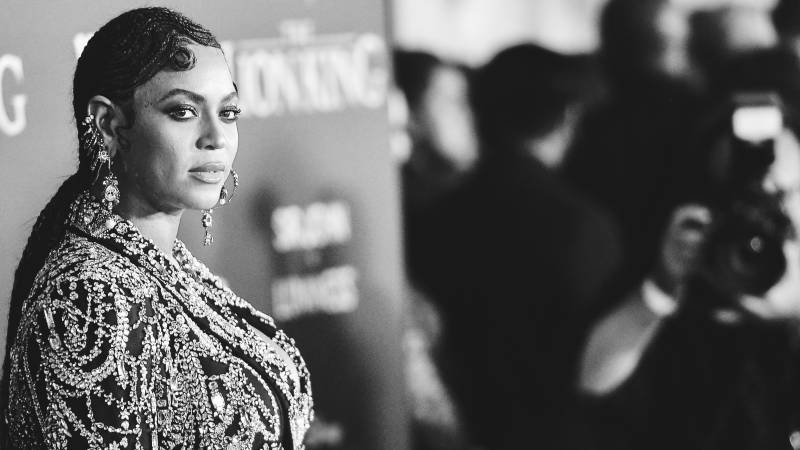“To live without reflection for so long might make you wonder if you even truly exist.”
There is a lot that can be communicated through longing. That internal sense of a missing piece and yearning for completion can be all-consuming. It can change the course of your life. For most, that might be a wanting for love, or the coveting of success. But in Beyoncé Knowles‘ Black Is King—directed by the star herself and released Friday on the streaming service Disney+—that longing is for the certainty of identity.
A visual companion to the album The Gift—itself a companion to the release of the live-action remake of Disney’s The Lion King—Black Is King is a retelling, of sorts, of the same story. This time though, it centers on ideas of Black belonging and regality. How has Blackness existed in the past? What does it mean in the present? How might it look in the future? In this extended metaphor, “king” is a synonym for the innate greatness that has been stolen from Black people the world over. With this project, Beyoncé seeks to restore that greatness to those of her lineage.
Knowles has long said she is a visual thinker, and those skills are never more apparent than when she applies them to her music. She is also a consummate collaborator, and as with Homecoming before it, the sheer scale of this project indicates how much she is able to delegate to others in realizing her creative vision. The music of The Gift itself draws on the legacy of afrobeat, blending the work of African artists like Burna Boy, Yemi Alade, Tiwa Savage, Nija and Shatta Wale with contributions from Black American artists like Tierra Whack, Pharrell Williams, Childish Gambino and Knowles’ husband, JAY-Z. The visuals, however, stand as a statement on their own, and extend the themes of Knowles’ other directorial outings.

9(MDAxOTAwOTE4MDEyMTkxMDAzNjczZDljZA004))

